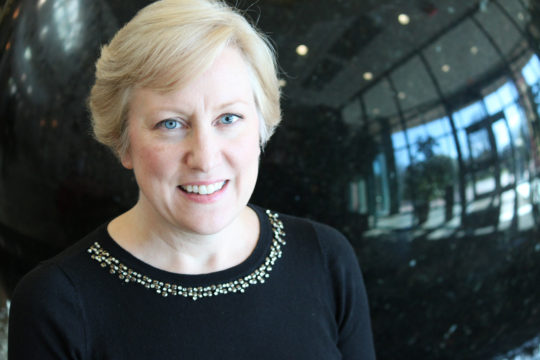
Did your New Year’s resolutions include improving your financial wellness? Lori Timm, our Financial Education Manager, decided to try ‘no-spend’ January and this is what she learned along the way.
After the overindulgence of the holidays, I started the New Year with a strong desire to change my ways. Not only did the weeks of eating unhealthy foods and getting out of my usual exercise routine make me feel lousy, the knowledge that my spending had gone way over budget weighed heavily on my mind. Then I heard about an idea that provided some promise for redemption. The “no-spend” January would allow me and my family to take a break from spending money, eating meals out, and indulging in our usual splurges. I pitched the idea to my two teenage boys and they were surprisingly receptive.
I knew that our biggest obstacle would be curbing our routine of going out for dinner during the week and lunch on the weekend. Given our fast-paced lives and my lack of culinary skills, eating out had become our default. I took the first Sunday of the New Year to lay out a meal plan for the week and then went to the grocery store to purchase everything we would need. I tried to involve the kids in the planning and cooking process. Some days are better than others. They raved about one new recipe and panned another. I found inspiration when discovering unique ways to repurpose leftover ingredients. This will definitely be a journey and I am able to find joy in the little things.
The “no-spend” experiment faced its first challenge about ten days into the month. When a good friend asked me to join her for dinner at our favorite sushi place, I felt torn between my desire to catch up with her and my commitment to the plan. My kids ribbed me a bit when I proposed that we take a one-time break from the “no-spend” regimen, but when I offered to fund their dinner out that night, they relented. I figure you have to build some flexibility into any plan to make it successful.
What has surprised me the most is how supportive my teenage boys have been about fulfilling our “no-spend” commitment. When I have gotten lazy and offered up the idea of going out for dinner instead of cooking, they have gently reminded me that we need to see this challenge through to completion. We made one exception to celebrate my son’s admission into his college of choice with pizza and boy, did it taste great!
People have asked me what I have learned from my “no-spend” month. I think I can sum up the takeaways as follows:
- It takes more time and intentionality to not spend money, especially since money outlays often occur mindlessly. You have to get organized, establish a plan, and then diligently work that plan.
- Living within certain restrictions often forces us to get more creative. Case in point, I coincidentally “found” a number of unused gift cards, redeemable reward points, and even a rebate check that arrived in the mail at my time of need. I also found some leftover meals in my freezer that were even tastier than I remembered the first time around.
- Delayed gratification is not a bad thing and it may turn out to be a very good thing come February when I finally click the “purchase” button on the item I’ve been eyeing online since 2019 began.
- Taking a break from spending makes me realize that I really don’t need all the stuff I typically buy. The experience has helped me rest in a place of gratitude for what I have and not worry about what I don’t have.
- I have found a certain peace at saying “no, not now,” knowing that this response does not close the door forever on my consumerism. It does, however, put me in the driver seat to make smarter choices about how I spend my money.
This experience so far has allowed me to reassess my priorities. Instead of spending, I have been laser-focused on ways to reduce my debt burden and increase my savings. While one month is not going to yield huge results, establishing a few good habits – like paying down credit card balances and increasing my 401k contribution – will set me up for greater financial wellness in 2019.
To learn more about improving financial wellness, contact Lori at 336.774.2683.

Lori Timm, Financial Education Manager



